Bring Me the Head of Alfredo Garcia (1974)
Directed by: Sam Peckinpah
Written by: Frank Kowalski, Gordon T. Dawson, Sam Peckinpah
Starring: Gig Young, Isela Vega, Robert Webber, Warren Oates
USA
AVAILABLE ON BLU-RAY AND DVD
RUNNING TIME: 112 mins
REVIEWED BY: Dr Lenera
In Mexico, crime lord El Jefe offers $1 million for the head of the man who impregnated his daughter – Alfredo Garcia, whom El Jefe had been grooming to be his successor. A pair of hit men named Sappensly and Quill go after the bounty and in their search encounter Bennie, a retired U.S. Army officer who makes a meager living as a piano player and bar manager. Bennie’s girlfriend Elita informs him that she’d also been seeing Alfredo and that Alfredo died from a drunk-driving accident. Bennie sets out to find Alfredo’s grave, remove his head and sell it, something unknown to Elita who’s along for the ride….
Apparently the favourite film of Takeshi Kitano, Bring Me The Head Of Alfredo Garcia is probably one that’s known more because of its terrific title than anything else. I first learned of it when in my teens I read a book by Harry Medved, Michael Medved and Randy Medved entitled ‘The Fifty Worst Films Of All Time’. Of course it made the film out to be terribly bad, but I soon realised the book was a load of rubbish when I began to gradually catch up with many of the movies mentioned in it; obviously everybody has different tastes, and it was hard to argue with the inclusion of certain titles like Blood Feast, but upon re-reading it some of the criticism seemed very odd and suggested a very limited and extremely conservative view of cinema. But Sam Peckinpah’s 1974 post-western illuded me until very recently. It seems to be much like the same director’s Straw Dogs in that critics at the time of its release mostly hated it and found it very off-putting, but these days appear to be equally divided as to its merits. Just after he finished it, and while his Pat Garrett And Billy The Kid was still doing the rounds in a re-edited version like many of his previous films, he was asked if he would ever make a film that was 100% him. He replied, ‘‘I did ‘Alfredo Garcia’ and I did it exactly the way I wanted to. Good or bad, like it or not, that was my film.” Me myself, I was immediately drawn into this bleak, bitter, unsentimental yet still touching poem of disillusionment and rage which in some respects sums up much of what was so good about ‘70s filmmaking. Watching it, I could feel the bitterness of its creator all the way through it, a man constantly screwed by studios and it seems life itself, raging at the world with only whatever booze was at hand to keep him going.
It was screenwriter and long-time friend of Peckinpah’s Frank Kowalski who told him the title “and the hook is that the guy is already dead”. Peckinpah loved it and put together the story while shooting Straw Dogs, then went on to write the shooting screenplay with Gordon Dawson. Peckinpah first offered the lead role to James Coburn, who hated the script so much he asked Peckinpah why on earth he’d want to film such a horrid thing. Peter Falk was then offered it, and was interested, but his busy schedule for Columbo meant that he had to pass. At the time it finally went into production with Warren Oates as the star, a low budget from United Artists because Peckinpah had had three flops, and a largely Mexican crew, Peckinpah said, “For me, Hollywood no longer exists. It’s past history. I’ve decided to stay in Mexico because I believe I can make my pictures with greater freedom from here”. This upset the Motion Picture and Television Unions who openly censured him and throughout to boycott the release, though they eventually relented on the latter. Shooting was tense, chiefly due to Peckinpah’s mental state brought on by marital troubles, various pills proscribed by doctors, and alcoholism – soon to be made even worse by Oates introducing him to cocaine which he soon took to far too much and often didn’t seem entirely ‘with it’ on set. He also changed the ending to be much more downbeat very late in the day. After the first public preview, there were only ten people left in the cinema, and the film didn’t do very well commercially or critically, though it was bound to become a cult movie.
Though often criticised for ugliness, this film begins beautifully with a pan out from a black and white photograph of some swans, until we realise that said photograph is just film that’s been paused and becomes colour as the swans start to pass by. A woman sits by the lake, her feet in the water, stroking the bump on her tummy. We’re given time to enjoy the tranquility until she’s summoned and escorted to a church where gunmen stand alongside members of the clergy. She won’t tell her father El Jefe who made her pregnant until two of his men nearly break one of her arms and she cries out “Alfredo Garcia”! Our hero – or should that be anti-hero – is first seen drunkenly playing the piano in a bar. Hitmen Sappensly and Quill enter to question everyone about Alfredo; two hookers approach them and Sappensly elbows one in the face knocking her out. It’s probably suggested in some reviews that this and other moments suggest that the two are gay, a sort of less humorous Mr. Wint And Mr. Kidd, though what I got more was that this world is one in which women are treated poorly, which may not be ‘modern’ in attitude but which is surely true to the environment of high and low-level crooks and prostitutes. Then we get a little bit of clever storytelling that truly impressed me. The pair show Bennie a photograph of Alfredo [which is actually a photograph of Oates made up to look Spanish], and on the soundtrack we can faintly hear the sound of a car crashing, ten or so minutes before we’re properly told that Alfredo perished in a car accident. It’s easy to miss, it’s possible that I may have done so if I wasn’t considering reviewing this film and therefore had my critic’s hat on a little, but is typical of how goddamn good this director often was. Soon after that, there’s another scene of a meeting where we can’t stop noticing that Quill is peeling an egg. Indeed virtually every character, even very minor, is given little bits of business to do which brings them alive.
It turns out that everyone in the bar knows who Garcia is; they simply don’t know where he is. Bennie is soon told what happened to him by his girlfriend, who admits to having cheated on Bennie with Garcia. Elita is a hotel maid though I get the impression that she’s also a prostitute. Like many of the women in Peckinpah’s films, she’s difficult to really get a handle on and show his conflicted view of females [he sure did like hookers] which would probably be pounced upon today, as would the fact that Isela Vega is frequently seen topless. I have no bones about admitting that I’m a straight bloke who enjoys seeing bare breasts on screen, doesn’t think that there’s anything wrong with this, and bemoans the fact that it doesn’t happen very often in today’s cinema, though I know that this may be an outdated view. In any case, Vega is terrific in the role and makes us really like this character who knows how to get by in this environment, something shown best in a scene which would be very controversial now. Bennie and Elita are accosted by two bikers who pull guns and decide to rape Elita. Elita agrees to have sex with them if they spare Bennie’s life, then goes off with one of them with the words, “I’ve been here before, you don’t know the way”, even making moves on the guy when he seems reluctant to do what he said he intended to do. Far from being offensive, it just seems to me to be very very sad, with this woman who’s probably been treated as a piece of meat all her life just doing what’s best to survive. The calm scene just before this when Bennie and Elita have an idyllic picnic is excellently written, as we learn, even though neither character explicitly states it until much later, that Alfredo was the guy whom Elita really loved and just doesn’t feel as strongly about Bennie as he feels about her, though she’s still willing to marry him. This is a relationship full of suffering and pain, yet we care about it and really want both of these damaged, foolish characters to go the distance.
Bennie’s plan for them to get enough money to make a life together is to find Alfredo’s buried body, cut off the head and sell it for a good price. Elita is understandably aghast at this when she finds out, but Bennie won’t be deterred. All of this moves at a pretty slow pace which may disappoint first time viewers expecting lots of bloody shootouts, yet despite Peckinpah’s reputation, action tended to be only be a small part of his work, the director more interested in exploring the conflict between values and ideals, as well as societal corruption – and I wonder if some of his anger here is being directed at those studio moguls who chopped up his films? Here, it’s over half way through before the expected shots of blood squibs hitting people who fall over in slow motion turn up, though there’s plenty of this stuff in the time that’s left. Seeing how Bennie is constantly seen knocking back the bottle, it’s a bit unbelievable that he’s able to shoot down so many opponents without getting a scratch himself, and the real highlights for me of the second half simply involve Bennie talking to the head in scenes that are blackly comic yet which also sum up the madness, desperation, and decay that permeate the entire film. We do chuckle a little, yet we also feel the pain of Bennie who [don’t forget] is carrying around the head [the bag actually contained meat so that flies would naturally buzz around it] of the man the woman he loved was in love with. Oates, never an actor I think of as being of huge note, is outstanding here as this loser who has no self worth but finds a purpose when everything seems lost to him while still undergoing internal as well as external torment. One scene has him act out such intense emotional pain that it brought tears to my eyes. But he never goes for easy sympathy yet we can’t help but like him all the same even as we feel like yelling at his self-destructiveness, and the way he does things like shoot a dead man because, as he says, “I feel so goddamn good”. He’d have been a great hero in the film noirs of several decades before.
The dialogue is often cynical yet sometimes has a kind of poetry to it. My favourite bit might be, “The church cuts off the feet, fingers, any other goddamn thing from the saints don’t they? Well what the hell? Now Alfredo’s our saint. He’s the saint of our misery, and I’m gonna borrow a piece of him”. Then there’s Peckinpah’s rather romantic view of Mexico which I’ve noticed in much of his other work, though here the already and perhaps deliberately cliched shots of bars and sombreros and whores are contrasted with modern structures and suits, and it’s obvious which Peckinpah prefers. Quite often we briefly focus on children playing, looking, being typical children, somehow keeping their innocence in this world of death and dirt. While there are a few minor things in the plot towards the end that don’t quite make sense, even they could possibly be said to be a crucial part of the film’s overall message which seems to be that, while we can certainly aspire to things like redemption in this awful world, nothing really matters and everybody dies sooner or later. The head, the girl, the money – it’s all irrelevant really. The drunkard’s view of honour this film depicts is presented as being as valid as any other kind, but it’s unimportant in the end. Bring Me The Head Of Alfredo Garcia is one of the most nihilistic films I’ve ever seen, yet a fascinating one that I’ll surely go back to because it’s so well done in most departments and such a very personal statement from its creator.
Rating: 










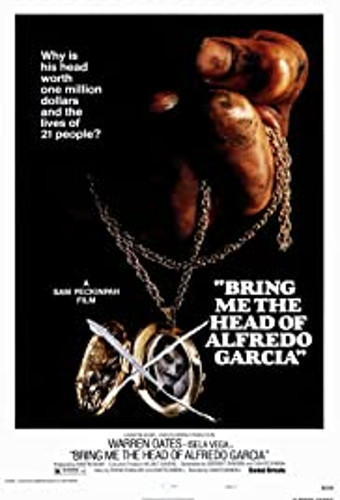
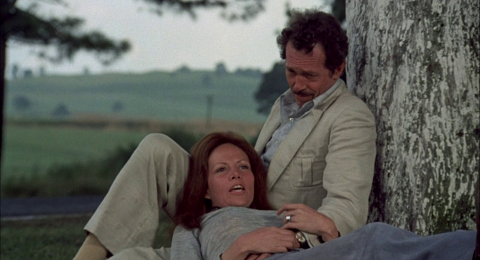
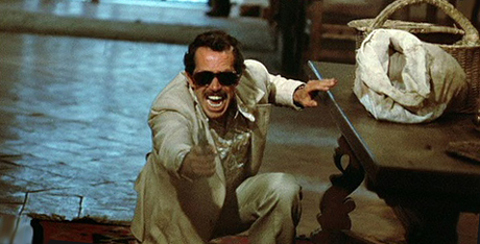

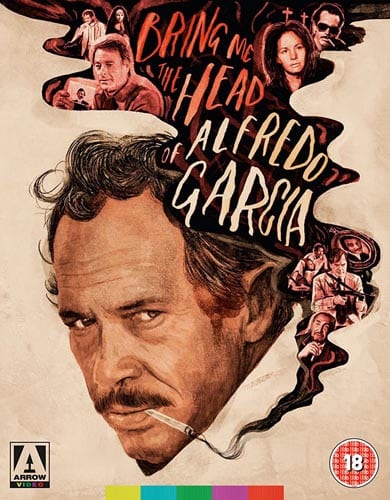
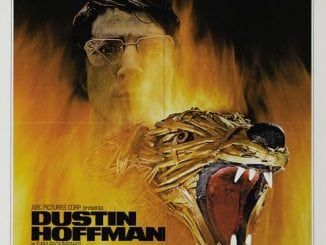
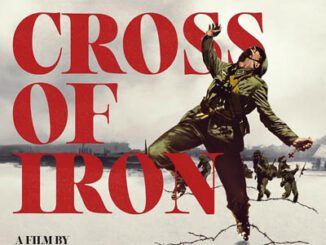
Be the first to comment